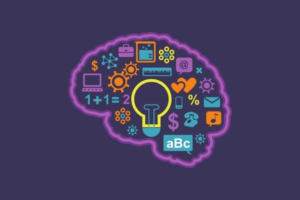A quick google of ‘self-awareness’ provides countless articles explaining the significance of self-awareness. Why? Self-awareness has significant benefits to how we conduct ourselves professionally and personally. It’s no wonder why self-awareness is the new buzzword! Self-aware people have higher levels of individual performance, increased job satisfaction, stronger relationships, more effective communication, as well as increased confidence and overall well-being. Self-aware people are also more effective leaders and managers with satisfied subordinates and higher profit margins. Reading all these benefits, why would we not want to increase our self-awareness? Let’s delve further into what self-awareness is and how we can improve it.
What is Self Awareness?
The self-awareness definition refers to the ability to see yourself clearly and objectively through reflection, self-examination and also through the perspective of others. Self-awareness helps us gain a deep understanding of our needs, desires, motivations, habits and failings. This level of self-understanding empowers us to make improvements and build on our strengths. Before you start thinking that you’re the most self-aware you can be, researchers argue whether or not it is actually possible to attain total objectivity about oneself. However, we can say for sure that there are varying degrees and types of self-awareness. The two types of self-awareness we explore in this article are internal and external.
Internal Self Awareness
Internal self-awareness represents how clearly you can identify your values, passions and your impact on others. A person with strong internal self-awareness has an understanding of their strengths, weaknesses, motivations and emotions. This first type of self-awareness is linked with increased job and relationship satisfaction.
External Self Awareness
The second type, external self-awareness, is defined as the ability to understand how others see you and to incorporate these views into your own evaluation of yourself. External self-awareness is associated with greater levels of empathy and understanding others’ perspectives.
Even though most individuals believe they are self-aware, research suggests that only 10-15% of people genuinely fit the above criteria. So, there’s a lot more work we can do to become even more self-aware.
Why Self Awareness is Important
Self-awareness has significant benefits for our mental health. With strong self-awareness, we better control our mindset and turn situations into something positive despite negative factors. Someone who is not self-aware can encounter repetitive obstacles and not understand why. A self-aware person will question why an obstacle happened and how they can avoid that situation the next time. These two people may have encountered the same barrier. However, the self-aware person was more able to overcome the problem.
Three of the top benefits of self-awareness include:
- Being able to switch a negative mindset to a positive one
- Recognising the effect of bad habits and overcoming these
- Identifying emotional triggers and being better equipped to handle them
How to Improve Self Awareness
Given the importance of both internal and external self-perspective on performance, one of the essential steps in a successful self-development plan is to utilise self-awareness tools to build both types of awareness. We recommend including a self-assessment such as a DISC personality test like an Extended DISC® assessment in your self-awareness training plan to build internal self-awareness and a 360 assessment to build external self-awareness. A DISC self-awareness test can improve your internal self-awareness and help you understand who you are as a person and why you behave the way you do. A 360 assessment is a great way to gain external self-awareness and understand how the people around you perceive you.
Tools for Self Awareness
DISC Assessment Tools for Internal Self-Awareness
A DISC assessment tool will help identify your natural behavioural strengths (the behaviours you fall back on when you skipped that morning coffee). They come quickly to you, do not require much focus and do not drain your energy. A behavioural assessment test is a great starting point for improved self-perception as it provides feedback about your natural tendencies without any judgment. A DISC self-awareness test will draw out your natural strengths and bring them to light. Once we have gained self-knowledge, we can reflect on our preferences and how they affect our communication, decision-making, and overall behaviour.
A DISC assessment can also identify your blind spots or development areas. You’ll definitely be needing the morning coffee and perhaps an extra one (or two!) if you are drawing on these behaviours daily. For example, those of you who like high amounts of detail are probably still reading this article and haven’t yet been distracted. However, those who need short to the point articles might be struggling to focus at this point (I’m sorry, I promise it’s almost finished). Although you may enjoy these behaviours, you will notice that you are using more energy and are very tired and/or burnt out by the end of the week.
Once you have identified these behaviours, it becomes easier for you to identify others natural strengths and development areas. This helps you adjust your behavioural style in your day to day conversations with your co-workers, bosses and team members.
A DISC self-awareness tests helps you draw out your strengths to help you build on them and make you aware of your development areas to grow and adjust when the situations calls for it.
360 Assessments for External Self-Awareness
A 360 assessment tool will draw on anonymous feedback from your co-workers to help cultivate an understanding of oneself. Feedback from an Open 360 assessment consists of several skill-based evaluations by your co-workers. This highlights areas where your colleagues perceive your individual’s strengths and development areas and within several competency groups. An Open 360 assessment is critical, as most people are not aware of other’s perception or experiences of them. Gaining knowledge of others view on yourself can significantly improve your motivation to develop weaker areas.
Awareness of the gaps between your self-perception and the view of your managers, peers, and direct reports helps you become aware of others’ expectations of you and the consequence of your actions on others. You can then address your challenges and development areas and make a proactive change to your behaviour and interactions with them.
An Open 360 Feedback assessment is invaluable for cultivating external self-awareness and enhancing career development.
Self-Awareness is the Key to Success
The combined effectiveness of DISC self-awareness tests and Open 360 assessments can successfully enhance self-awareness. Individuals who focus on cultivating internal and external self-awareness and welcome constructive feedback from colleagues and peers experience the benefits of increased self-perception. Those who truly become self-aware constantly adjust their behaviour and interactions based on the DISC behavioural assessment and 360 Feedback. This adjustment helps to overcome barriers and turn negative mindsets into positive ones.
If you are implementing self-awareness training in your organisation, we recommend you include DISC behavioural assessments and 360 assessments.




